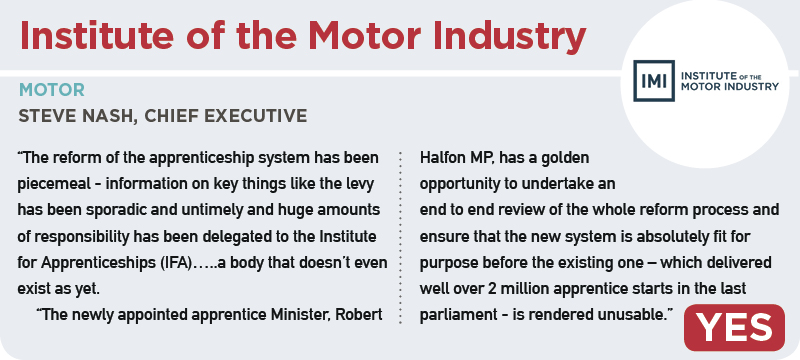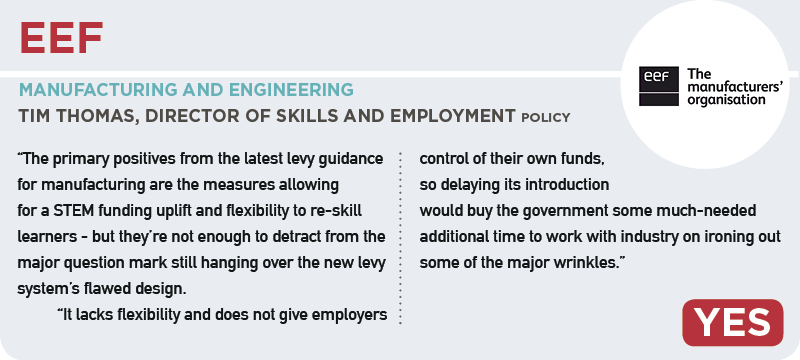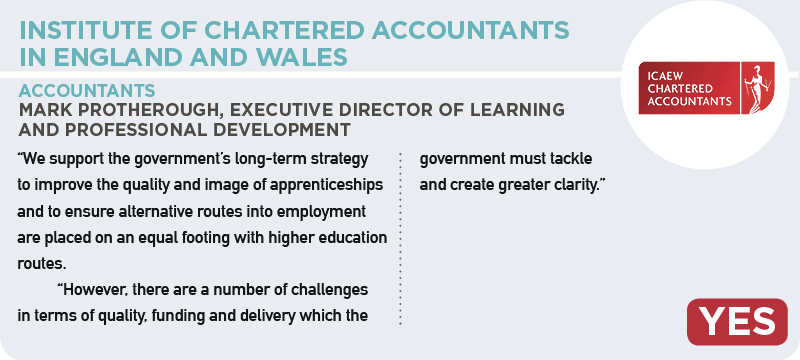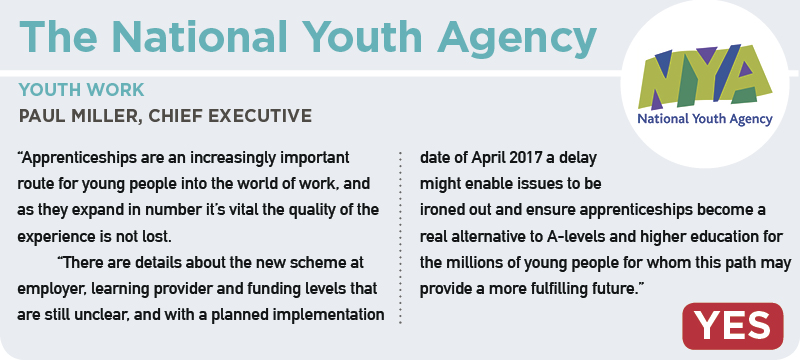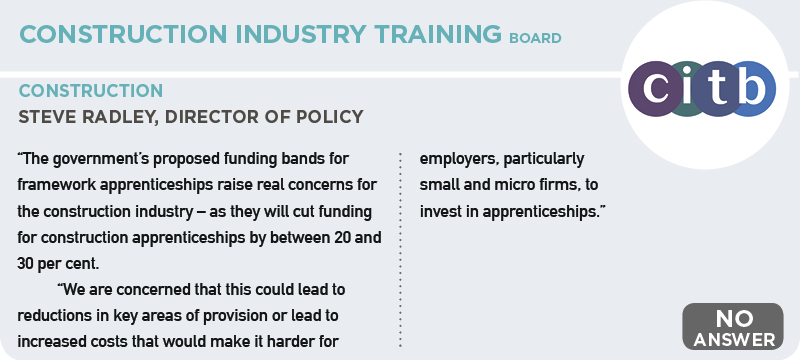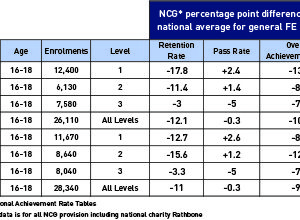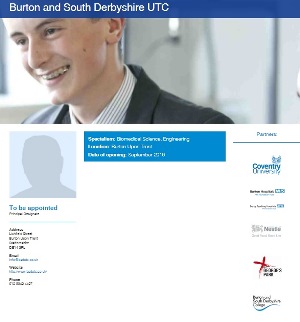The new skills minister has dismissed widespread calls to delay the apprenticeship levy launch, even after 10 major professional bodies called on him to rethink.
Robert Halfon (pictured) dismissed the findings of an FE Week investigation, claiming any hold-up past next April’s launch date would delay “millions of opportunities for both business and people”.
Yet none of the 10 organisations that responded to FE Week’s call for views supported pressing ahead with the current super-tight timescale for rollout of the levy and associated funding reforms.
Views came from a broad spectrum of employers in key sectors, which run apprenticeships from horticulture, manufacturing and engineering, tech, oil and gas, and youth work, to water, tourism, construction, beauty, motor, and accountancy.
Tim Thomas, the director of skills and employment policy at the manufacturing and engineering body EEF, said the plan “lacks flexibility”, while the boss of the Institute of the Motor Industry, Steve Nash, complained that guidance had so far been “sporadic and untimely”.
Other concerns over unresolved issues included new funding bands which were described as “uneconomical”, particularly for 16- to 18-year-olds, the impact of Brexit, and the way the system will work across different countries within the United Kingdom.
The National Audit Office brought up significant worries about poor government management of apprenticeship reforms, and called on the DfE to “expand its work on behavioural risks implementation”, in a new report published on Tuesday (September 6).
The NAO blasted the government’s lack of contingency planning for funding reform, including the introduction of the levy, if things do not work out as planned.
FE Week asked the DfE if it had any contingency plan that included potential for a delay. The department declined to answer directly, instead providing a statement Mr Halfon.
“The apprenticeship levy is a game-changer,” he wrote. “It will create a ladder of opportunities for millions of people and give businesses the skills they need now and for the future. The levy allows us to invest more than ever in apprenticeships. Delaying the apprenticeship levy would mean delaying millions of opportunities for both business and people.”
He added: “While it is true some businesses want us to delay – there are many who want the levy to go ahead. Organisations such as the Chartered Management Institute (CMI) and the Association of Education and Learning Providers (AELP) have been vocal in their support.
“We have been working closely with employers of all sizes to determine how the levy will work for them and will continue to do so. We will listen to what they have to say to ensure the levy will work best for them.”
Mark Dawe, chief executive of AELP, told FE Week that he supports pressing ahead with the launch of the levy, but wants to delay other apprenticeship reforms.
“We can’t afford to wait longer because the levy is even more vital following the Brexit vote and the need to develop our own skills base, with the likely ending of the free movement of labour,” he said.
“However there are other aspects of the apprenticeship reforms such as the standards, the provider register and this autumn’s non-levy payers’ procurement exercise, where the transitional risks are very high, and where a pause for further deliberation would be welcome.”
Petra Wilton, director of strategy at CMI, which specialises in management and leadership development across the public and private sector, confirmed that she supported the current levy timetable.
“In the uncertainty of post-Brexit, it has become very clear that the UK needs to invest far more in skills to boost its productivity and international competitiveness. Now more than ever, businesses need more certainty around the levy, as opposed to further delays.”
FE Week asked a range of professional sector employment bodies if the apprenticeship levy should be delayed:
